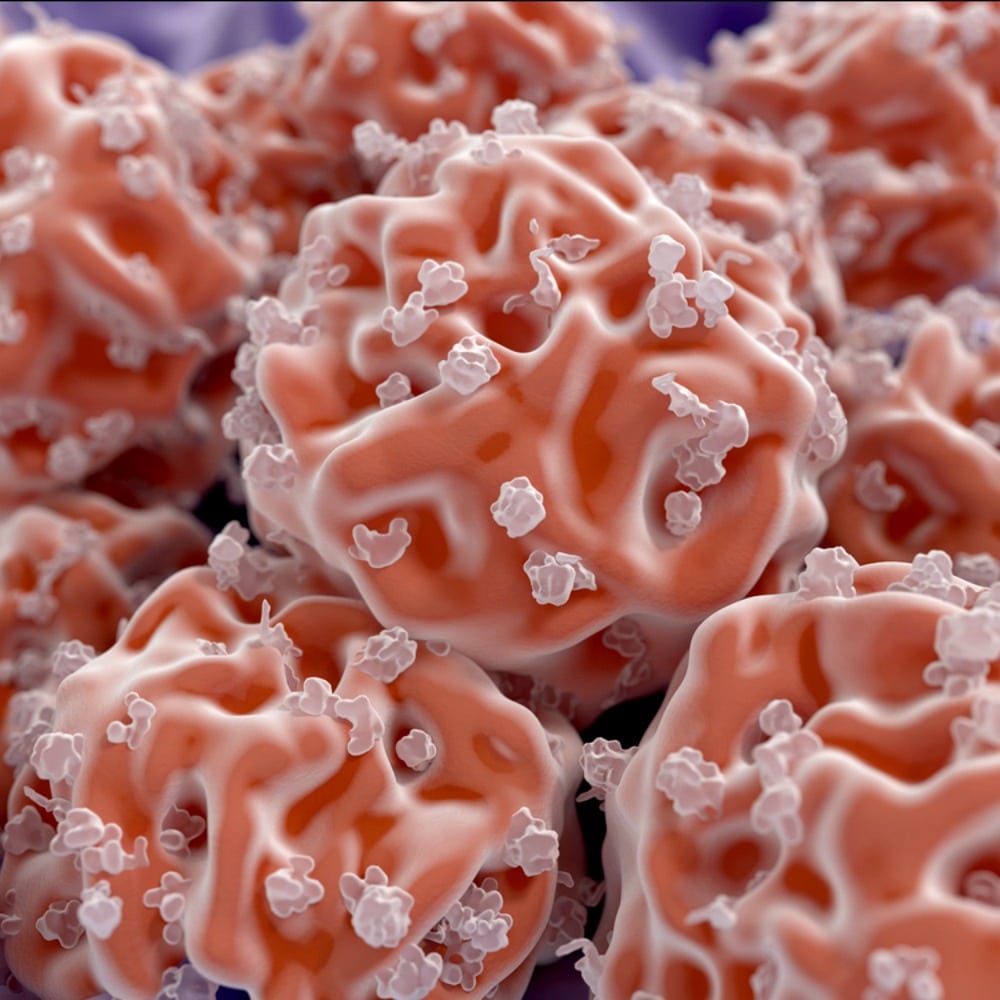Medical researchers at the University of California, Irvine have created a stem cell-based method to zero in on cancerous tissue. This method kills the cancerous tissue without causing the nasty side effects of chemotherapy. Such side effects are avoided by treating the disease in a more localized manner. The advancement was spearheaded by associate professor of pharmaceutical sciences Weian Zhao. The details of the stem cell therapy were recently published in Science Translational Medicine.
About the new Stem Cell Therapy
Zhao’s team programmed stem cells derived from human bone marrow to pinpoint the specific properties of cancerous tissue. They implemented a portion of code to these engineered cells to identify stiff cancerous tissue, lock onto it and implement therapeutics. The researchers safely used this new stem cell therapy in mice to kill metastatic breast cancer that had moved to the lungs. They transplanted these engineered stem cells in order for the team to pinpoint and settle in the site of the tumor.
Once the stem cells reached the tumor, they released enzymes referred to as cytosine deaminase. The mice were then provided with an inactive chemotherapy known as prodrug 5-flurocytosine. The tumor enzymes stimulated the chemotherapy into action. Zhao stated his team zeroed in on metastatic cancer that occurs when the disease moves to additional parts of the body. Metastatic tumors are especially dangerous. They are responsible for 90 percent of all cancer deaths.
Why the new Stem Cell Therapy is Important
Zhao is adamant his stem cell therapy represents an important new paradigm in the context of cancer therapy. Indeed, Zhao has blazed a trail in a new direction that others will likely follow in the years to come. It is possible his new stem cell therapy serves as an alternative and more effective means of treating cancer. This stem cell therapy will serve as an alternative to numerous forms of chemotherapy that typically have nasty side effects. Chemotherapy certainly kills plenty of growing cancer cells yet it can also harm healthy cells. The new type of treatment keys in on metastatic tissue that allows for the avoidance of the undesirable side effects produced by chemotherapy.
Though the published piece describing this stem cell therapy is centered on breast cancer metastases within the lungs, the method will soon be applicable to additional metastases. This is due to the fact that numerous solid tumors are stiffer than regular tissue. The new system does not force scientists to invest time and effort to pinpoint and create a brand new protein or genetic marker for each kind of cancer.
The Next Step
At this point in time, Zhao’s team has performed pre-clinical animal studies to show the treatment is effective and safe. They plan to segue to human studies in the coming months and years. Zhao’s team is currently expanding to additional types of cells such as cancer tissue-sensing and engineered immune system CAR-T (T cells) to treat metastasizing colon and breast cancers. Their goal is to transform this technology for the treatment of additional diseases ranging from diabetes to fibrosis and beyond.




